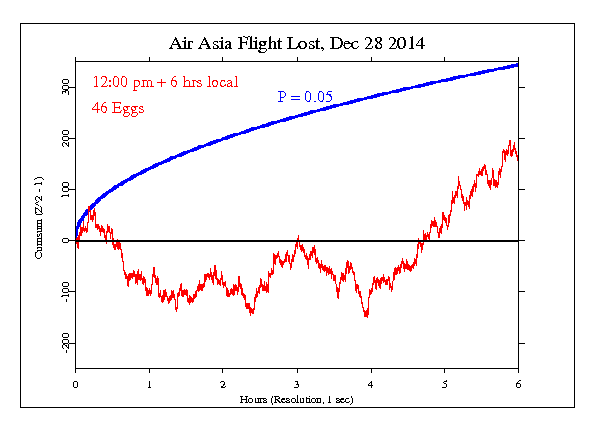Air Asia 8501 Lost
Standard analysis
Another loss of a plane in Indonesia,. apparently due to terrible
weather including severe thunderstorms.
AirAsia Flight 8501 disappeared from radar screens Sunday with
162 people aboard. Here is what we know:
• The Airbus A320 flew out of Surabaya, Indonesia, at around 5:35 a.m.
local time on Sunday (5:35 p.m. ET Saturday), bound for Singapore.
• Less than 40 minutes later, the pilot radioed air-traffic control
asking to increase the plane's altitude due to the weather. Heavy storms
were reported in the area.
• Minutes later and about an hour before the plane was scheduled to land
in Singapore, the plane lost contact with controllers and disappeared
from radar.
• AccuWeather meteorologist Tyler Roys tells USA TODAY that the area
along the flight path was blasted by a string of severe thunderstorms
when the jet disappeared.
The wreckage of the plane has been located two days later, but there is no hope that anyone survived.
Specific hypothesis and results
The GCP hypothesis was set for 6 hours beginning at 00:00 on the 28th, corresponding to 7 am + 6 hours local time, when the announcement was made that the plane lost contact with controllers. The result is Chisquare 21758.768 on 21600 df, for p = 0.222 and Z = 0.765.
Interpretation
The following graph is a visual display of the statistical result. It shows the second-by-second accumulation of small deviations of the data from what's expected. Our prediction is that deviations will tend to be positive, and if this is so, the jagged line will tend to go upward. If the endpoint is positive, this is evidence for the general hypothesis and adds to the bottome line. If the endpoint is outside the smooth curve showing 0.05 probability, the deviation is nominally significant. If the trend of the cumulative deviation is downward, this is evidence against the hypothesis, and is subtracted from the bottom line. For more detail on how to interpret the results, see The science and related pages, as well as the standard caveat below.

Standard caveat
It is important to keep in mind that we have only a tiny statistical effect, so that it is always hard to distinguish signal from noise. This means that every “success” might be largely driven by chance, and every “null” might include a real signal overwhelmed by noise. In the long run, a real effect can be identified only by patiently accumulating replications of similar analyses.
